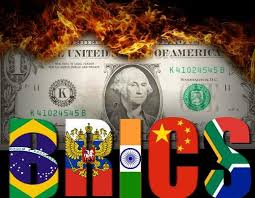
Breaking News
 HERE WE GO: Massie Says He Has a "Vote Bloc of 10" Republican Lawmakers Who Are No's o
HERE WE GO: Massie Says He Has a "Vote Bloc of 10" Republican Lawmakers Who Are No's o
 Ratcliffe Declassifies CIA Documents – Reveals Comey, Brennan, and Clapper Purposely...
Ratcliffe Declassifies CIA Documents – Reveals Comey, Brennan, and Clapper Purposely...
 BREAKING UPDATE: House Advances Trump's Big Beautiful Bill – 219-213
BREAKING UPDATE: House Advances Trump's Big Beautiful Bill – 219-213
 'Maga Mark' Zuckerberg unceremoniously kicked out of Oval Office after White House tour
'Maga Mark' Zuckerberg unceremoniously kicked out of Oval Office after White House tour
Top Tech News
 xAI Grok 3.5 Renamed Grok 4 and Has Specialized Coding Model
xAI Grok 3.5 Renamed Grok 4 and Has Specialized Coding Model
 AI goes full HAL: Blackmail, espionage, and murder to avoid shutdown
AI goes full HAL: Blackmail, espionage, and murder to avoid shutdown
 BREAKING UPDATE Neuralink and Optimus
BREAKING UPDATE Neuralink and Optimus
 1900 Scientists Say 'Climate Change Not Caused By CO2' – The Real Environment Movement...
1900 Scientists Say 'Climate Change Not Caused By CO2' – The Real Environment Movement...
 New molecule could create stamp-sized drives with 100x more storage
New molecule could create stamp-sized drives with 100x more storage
 DARPA fast tracks flight tests for new military drones
DARPA fast tracks flight tests for new military drones
 ChatGPT May Be Eroding Critical Thinking Skills, According to a New MIT Study
ChatGPT May Be Eroding Critical Thinking Skills, According to a New MIT Study
 How China Won the Thorium Nuclear Energy Race
How China Won the Thorium Nuclear Energy Race
 Sunlight-Powered Catalyst Supercharges Green Hydrogen Production by 800%
Sunlight-Powered Catalyst Supercharges Green Hydrogen Production by 800%
The BRICS New Development Bank (NDB) versus US Dollar Empire: Quietly Challenging US...

The global financial system, long dominated by Western institutions like the World Bank and the IMF, faces a quiet but persistent challenge from the New Development Bank (NDB), often referred to as the BRICS Bank. Under the leadership of former Brazilian President Dilma Rousseff, the NDB has positioned itself as a potential counterweight to the Western-led financial order, though analysts question its capacity to really reshape global finance. Having consistently kept its AA+ rating from S&P Global, the NDB has indeed demonstrated credibility, but expectations regarding it — such as complementing initiatives like China's Belt and Road Initiative (BRI), expanding membership, or promoting full-fledged de-dollarization — face significant challenges and possibilities in an emerging multipolar world. Be as it may, the bank's trajectory indicates a bold, albeit underreported, shift in the geopolitical financial landscape.
The NDB, established in 2015 by the BRICS nations (Brazil, Russia, India, China, and South Africa), was conceived as a multilateral development bank (MDB) to finance infrastructure and sustainable development projects in emerging economies. Unlike Western institutions, which often impose stringent conditions (typically tied to economic liberalization reforms, which some would describe as "neoliberal"), the BRICS bank instead prioritizes flexibility and local-currency lending, aiming to reduce risks for borrowers and promote the growth of capital markets in member countries as well as reducing reliance on the US dollar.
Rousseff, who has led the bank since March 2023 (she was re-elected for a five-year term in 2025), has been a vocal advocate for this shift, in terms of steering the NDB toward a multipolar financial vision She has emphasized the bank's role in serving the Global South, by financing projects like a 1.2-billion-yuan loan for environmental initiatives in China, which align with sustainable development goals. This focus on sustainability and infrastructure arguably positions the NDB as a complement to China's BRI, as analyst Joseph Bouchard has pointed out, by creating a synergy that could amplify the Global South's economic autonomy.
One may recall that the NDB's very creation was a response to the perceived inequities of Western-dominated financial institutions. The bank's commitment to lending 30% of its loans in local currencies by 2026 is a blunt challenge to dollar hegemony: it aims to shield member states from exchange rate volatility and American monetary policy shifts. A study supports the feasibility of this goal, suggesting that "increased intra-BRICS trade may reduce reliance on the US dollar for transactions, especially in the short term".

 He 3D Printed a Whole House
He 3D Printed a Whole House

